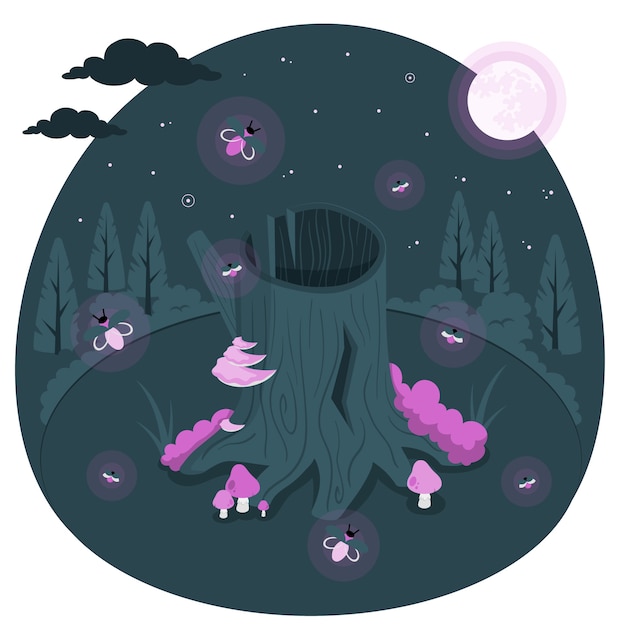Fascinating Facts about Fireflies

Fireflies are not actually flies; they are beetles.
Fireflies belong to the Lampyridae family.
There are over 2,000 species of fireflies worldwide.
Fireflies produce light through a process called bioluminescence.
Male fireflies use their light signals to attract females for mating.
Fireflies emit different patterns of light to communicate with each other.
Fireflies can synchronize their flashing patterns with other fireflies in their group.
Fireflies produce their own light by combining oxygen with a substance called luciferin.
The light produced by fireflies is extremely efficient and almost all of the energy is emitted as light.
Fireflies are often found in humid areas near water bodies such as rivers, lakes, and marshes.
Firefly larvae are also bioluminescent and emit light for defense against predators.
Fireflies spend most of their lives as larvae, with some species living for several years in this stage.
Firefly larvae feed on small invertebrates, including snails, slugs, and worms.
The adult lifespan of a firefly is typically only a few weeks.
Fireflies are most active during warm, summer evenings.
Fireflies are attracted to light sources such as streetlights, porch lights, and flashlights.
Fireflies are found on every continent except Antarctica.
Fireflies are sensitive to environmental changes and are considered indicators of ecosystem health.
Fascinating Facts about Fireflies part 2
Fireflies are not harmful to humans and do not bite.
Fireflies have unique flash patterns depending on their species.
Fireflies emit a greenish-yellow light, but some species can produce red and orange lights as well.
The light emitted by fireflies helps deter predators who associate the light with a foul taste.
Fireflies have a slow and deliberate flight pattern.
Fireflies have been the subject of many cultural myths and stories, symbolizing love and magic.
Fireflies are popular subjects for photographers, as their light trails can create stunning visual effects.
Fireflies are more active in areas with minimal light pollution.
Fireflies are an inspiration for biological research in developing new lighting technologies.
Fireflies have helped scientists understand the mechanics of bioluminescence and its applications in medicine.
Fireflies are attracted to specific environmental conditions, including temperature and humidity.
Fireflies emit a small amount of heat along with their light, which helps them regulate their body temperature.
Fireflies are not easily found during daylight hours, as they tend to rest and hide in vegetation.
Firefly populations have been declining due to habitat loss, pollution, and pesticides.
Fireflies play a vital role in pollination, particularly for plants that bloom at night.
Fireflies have different flash patterns depending on their geographic location.
Fireflies are used in traditional medicine in some cultures for their supposed healing properties.
Fireflies have been used as bioindicators to study the effects of pollution on ecosystems.
Fireflies are attracted to certain colors, with yellow and green being the most enticing.
Fireflies are known for their ability to light up trees and fields like a magical fairyland at night.
Fireflies are a common sight during summer festivals and celebrations in many countries.
Fireflies are often depicted in artwork and literature due to their enchanting beauty.
Fireflies have inspired the creation of toys and products that mimic their bioluminescent light.
Fireflies have been studied for potential applications in genetic engineering and biotechnology.
Fireflies emit their light through specialized organs in their abdomen, called photic organs.
Fireflies are attracted to mating partners with the brightest and most consistent light signals.
Fireflies are fragile creatures that remind us of the delicate and fleeting nature of life.

